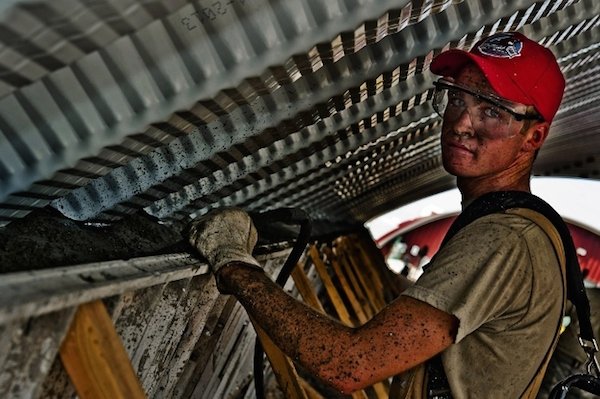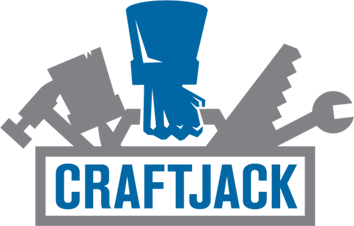What You Should Know About The Skilled Labor Shortage

As a new generation enters the workforce, another begins to leave. For the construction industry, this can present challenges for contractors. The industry is struggling to retain new, young workers as an older generation of skilled craftsman start to leave the field.
According to the Skilled Labor Shortage study released by HomeAdvisor in February, 76% of construction business owners feel that it will be difficult to find new employees, despite plans to hire within the year. As housing currently represent 18% of U.S. economic activity, this is a huge hurdle as industry pros strive for success.
In the study, HomeAdvisor reports that labor shortages tend to be the highest for those in carpentry, sheet metal installation, concrete workers, electricians and equipment operators, even though jobs are available. Not only are employers looking for the help, but without an up and coming workforce, it can have great implications on the industry and the economy. This is not something to be taken lightly. The report states this is likely due to the younger generations not having a desire to enter the field.
A New Generation of Contractors
If statistically, the Millennial generation currently represents the largest working age group, where are they? This generation is shying away from entering the construction industry. HomeAdvisor credits the following factors:
- Negative industry stereotypes and perceptions
- Lack of exposure and education on trades
In a press release, Marianne Cusato, HomeAdvisor’s housing expert and professor of the practice at the University of Notre Dame’s School of Architecture, elaborated on ways she believes the industry can work towards gathering a younger, skilled workforce.
“By creating more educational resources such as mentorships and apprenticeships, there is a tremendous opportunity to expose younger generations to the benefits that come with being a successful craftsman and independent business owner,” Cusato said.

Understanding the Next Generation
If you’re looking to grow your business and retain young members of the workforce, there are plenty of things you can do to help bridge the generation gap. Here’s what you should know about Millennial workers.
Value Flexibility
Millennials value work/life balance flexibility more than generations past. They desire a career path that will allow them to juggle their many activities outside of work.
Team-Oriented
This new, social generation enjoys working and learning together. They’ll work the best in groups and desire to grow relationships with co-workers.
Feedback Needed
The Millennial generation was raised with constant, valuable feedback. This trait has followed them into adulthood, with many workers needing feedback and reassurance on their work.
Tech-Savvy
This generation likely saw the start of the Internet, then watched it grow and become a vital communication tool. They’re likely to know the latest apps and have plenty of information at their fingertips.
Eager to Learn
Millennials love to do jobs with purpose. If given a new task, they want to learn about it and know why it must be accomplished.
With this in mind, consider your approach to your Millennial employees and what generational differences you may be experiencing. Additionally, keep these differences in mind as you begin to hire new workers.

Leadership & Mentorship
It’s stated in the HomeAdvisor study, but what the next generation of skilled laborers need is leaders and mentors to help educate and train the next generation. The study says that the biggest thing Millennials are looking for in their careers is professional encouragement through development, mentorships, family support and apprenticeships.
Effective leadership matters. Though you have plenty to do on the job site, be aware of how you’re leading those who work with you. Here are some good leadership traits:
- Honesty
- Decisive
- Communicative
- Confident
- Creative
- Intuitive
Mentorship is critical to reversing the shifts in the industry. As a mentor, you can pass down your expertise to the younger generation. By taking time to invest, you can build relationships and trust with your workers. Think about how you learned your trade and share your experiences with those entering the field. Listen to them about challenges and questions they may have. You’ll likely have “been there and done that” wisdom to share. You may even learn something new as well.
Conclusion
As an experienced pro, you have the ability to help change the skilled labor shortage. In the short term, you’ll see your business succeed. Long term, you’ll continue to invest in a trade and a new generation who will hopefully teach generations to come.

